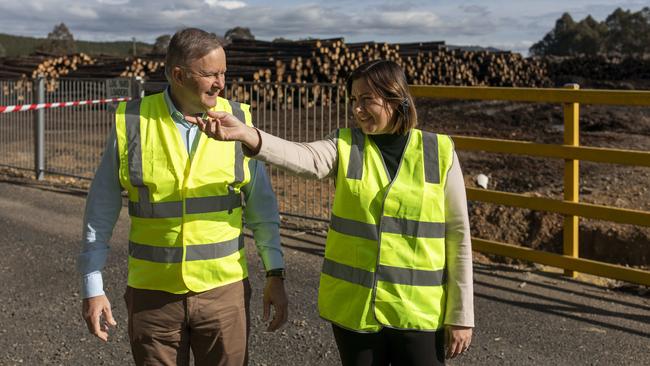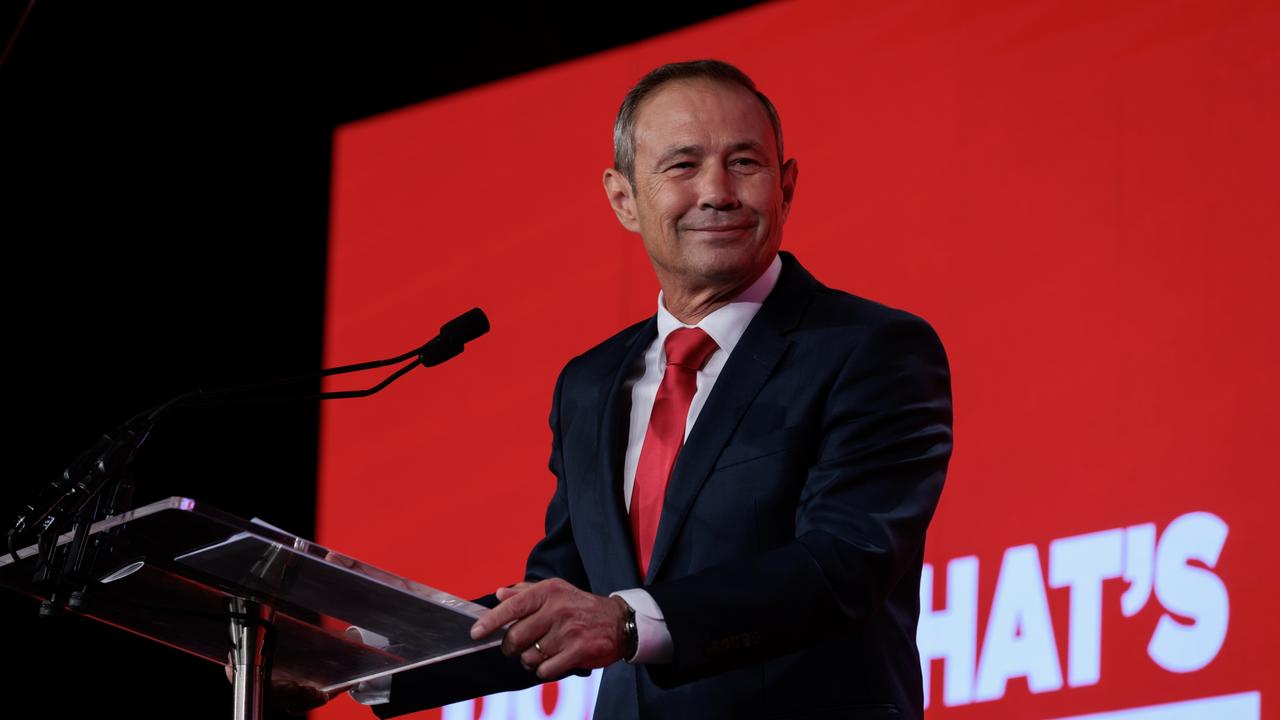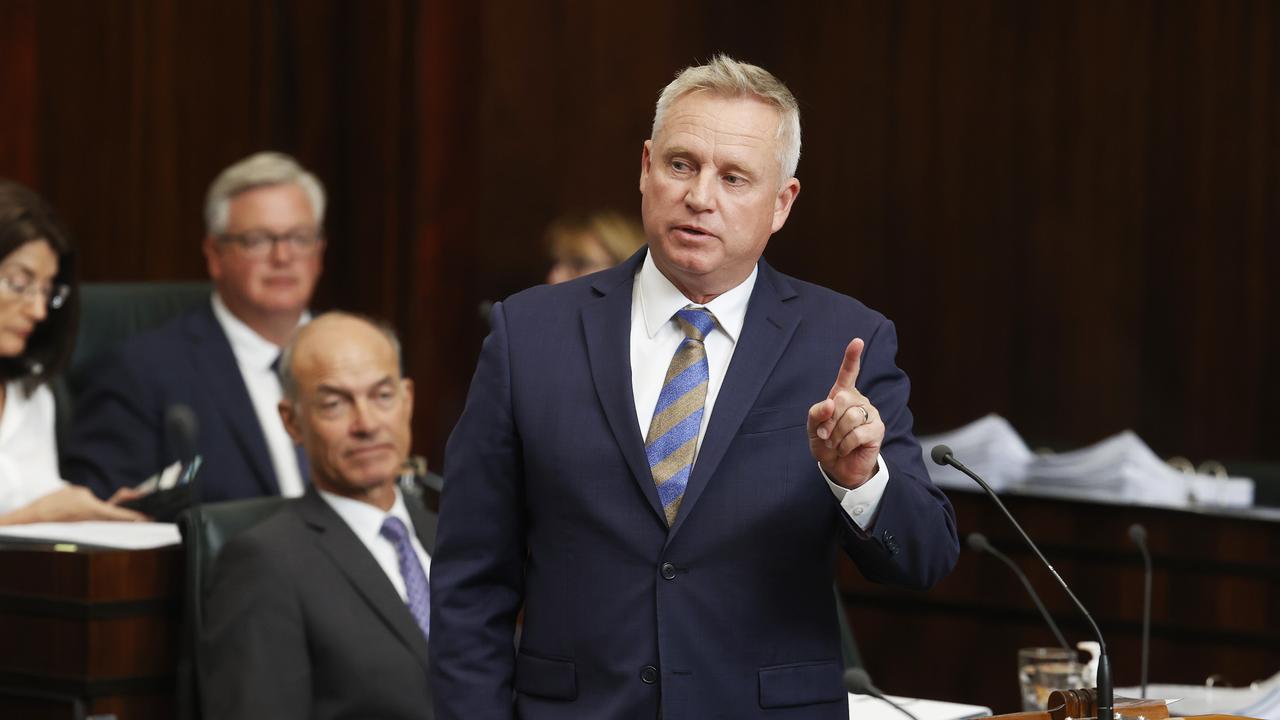Eden-Monaro: There’s a golden rule about by-elections, but neither party is buying it

Rudd was still at peak popularity, and then opposition leader Brendan Nelson, who at one point rated 9 per cent in Newspoll as preferred prime minister, was struggling. Not that Labor was in any danger of winning Gippsland, but the Coalition appeared to be heading for a drubbing, maybe with a swing to the government.
It didn’t quite work out that way, partly because of the threatened closure of the Traralgon post office. Nelson latched on to it like a limpet mine, demanding Rudd personally intervene to ensure it stayed open.
In a three-cornered contest, Darren Chester won the seat with a 6-plus per cent, two-party-preferred swing to the Nationals.
Who would have thought a good local candidate with a good campaign fought on a potent local issue would have given Rudd a minor nosebleed so soon after such a magnificent victory?
Just goes to show what can happen in by-elections, or general elections, even if the leader of the ruling party has been riding high.
In that context, take former Queensland premier Anna Bligh. Her handling of the state’s disastrous 2011 floods completely reversed her fortunes. Or so it seemed. Her approval ratings went from hugely negative to handsomely positive, Labor surged ahead of the Liberal National Party, which then dumped its leader in favour of Campbell Newman, who was not even in parliament. A year later, Bligh suffered the biggest electoral defeat in Australian history.
All of that happened in a much less complex world, what we now remember wistfully as normal. What is hard to know is whether the same electoral rules will apply in these most extraordinary times, when a pandemic threatens a depression, triggers a trade war with China which can further damage the economy, and irrevocably alters life as we know it.
The looming Eden-Monaro by-election will either confirm those rules still apply or write a new chapter of our political history. Marking the start of the psych wars, Anthony Albanese and Scott Morrison emphasised just how difficult it will be for them to win.
Both have legitimate claims for underdog status. Labor cites the loss of Mike Kelly’s personal vote and the Liberals the fact that no government has won a seat from the opposition at a by-election for 100 years — coincidentally, since the last pandemic.
It is also fair to say that the Opposition Leader has more to lose if he fails than the Prime Minister does, despite Albanese’s mates and occasional enemies dismissing suggestions his leadership would be threatened, ostensibly because they all appreciate how difficult it will be to retain the seat.
That sounds logical, except politicians don’t always behave rationally after a loss, despite what they say beforehand. Even if they do, blows to morale inevitably feed into disunity.
If Morrison does win, with or without the help of another miracle, he will be untouchable, Saint Scotty of the Shire. Few dare question him now, and even fewer will risk it after.
Whatever the final reasons for a victory — and it will likely come down to the ground game, particularly the use of social media — Morrison will reign supreme.
If he loses, the halo will need a slight adjustment.
Although the government had a rocky start, with an unedifying brawl between the Nationals’ John Barilaro and the Liberals’ Andrew Constance, not even Labor thinks this will be a factor by the time of the vote, barring another flare-up.
Labor’s campaign skills remain untested after last year’s election and there is speculation, not denied, that the Liberals, with their formidable state and federal apparatuses, are prepared to spend up to $1m to win the seat, money Labor says it doesn’t have. More psych wars.
There will be the traditional themes. Labor will try to keep the focus on the slow pace of the bushfire recovery, the unfairness of some of the welfare payments and the government’s plans to unwind job subsidies, and fully expects the Liberals will turn the whole thing into a referendum on Morrison’s leadership. Labor will use the time-honoured strategy of urging voters to send the government a message. It always worked a treat BC.
The Liberals will try to keep debate away from the bushfire recovery, to this recovery, pointing to Morrison’s handling of the pandemic, urging voters to consider who would better manage a depressed economy, without using the D word, while emphasising the importance of having an MP sitting on the government benches as an advocate.
Although the Liberals already question her role in the recovery and council administration, Labor describes its candidate, Kristy McBain, as its best asset. Albanese chose the former Bega mayor personally after watching her perform months ago at a bushfire recovery roundtable. Albanese has spent almost every spare minute campaigning with her in the electorate, a presence some Liberals have unkindly welcomed. Others caution against underestimating him.
If as expected the Liberals preselect Fiona Kotvojs, she will match McBain. Liberal campaign strategists reckon the most appealing candidates for voters are local women embedded in the electorate either through business or community work. McBain and Kotvojs fit that bill. So does independent candidate Karen Porter, who had planned to run as a “New Liberal” but can’t get the name registered in time.
Kotvojs’s chances of winning improve if the Nationals decide not to run. No Nationals candidate and Kelly’s absence could mean an additional 5 or 6 per cent for her. Nationals branches are expected to meet within a fortnight to discuss whether to run a candidate in a seat the party has no chance of winning and has never held.
A complication could be if the Shooters and Fishers decide to run if the Nats don’t. The Traralgon equivalent then could be the culling of brumbies from the Alpine National Park, which the Victorian government is planning and which, thanks to laws pushed by Barilaro, NSW opposes. Romantics hung up on the Man from Snowy River see the culling as sacrilege, but for true lovers of the environment the wild horses are pests and wreckers.



Six months after Kevin’s Ruddslide, there was a by-election in the Victorian seat of Gippsland, caused by the resignation of the Nationals’ Peter McGauran, the first of a string of former Howard government ministers to quit the federal parliament.